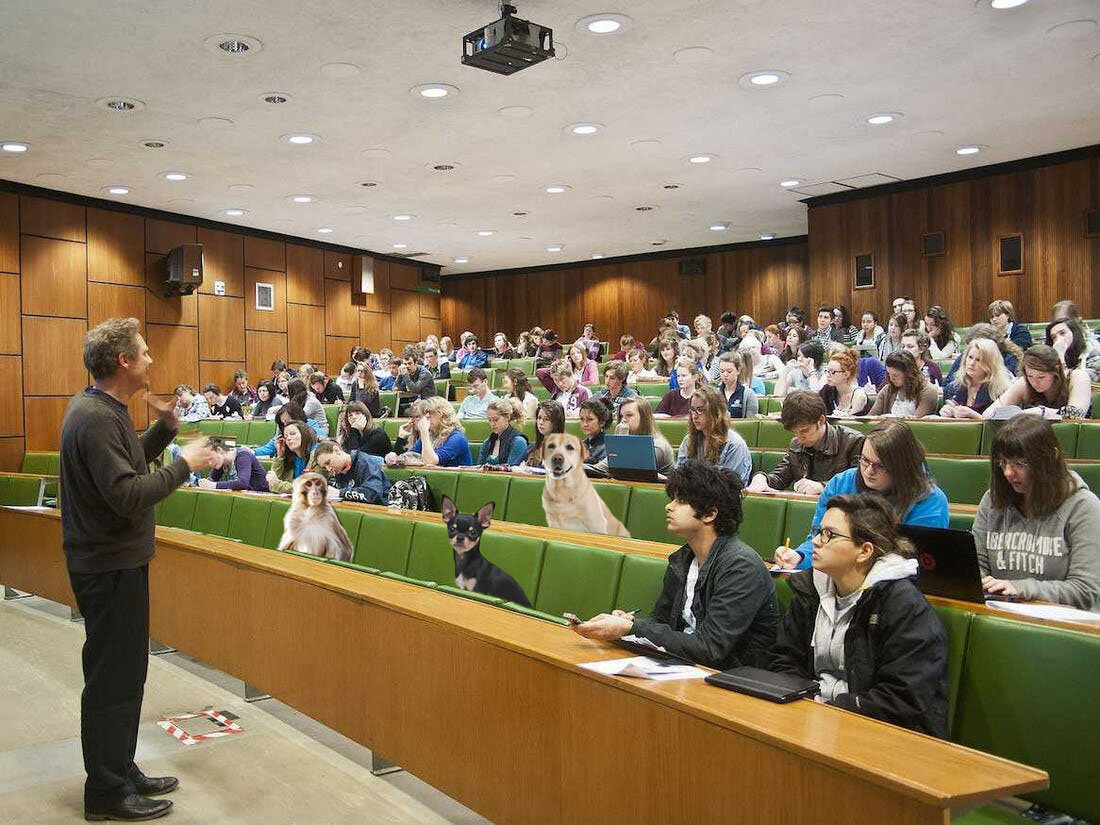Columbia released a statement yesterday following several reports of pets in the background of students’ Zoom screens. The statement read: “It has come to our attention that students have been allowing their pets to attend their Zoom classes—and not just the usual suspects like dogs and cats, but also, more troublingly, animals with greater intellectual capacity, such as parrots and pigs. This can only continue if the offending students agree to pay the standard auditing fee. Being online does not diminish the value of education, and we are only looking to protect our beloved institution.”
When several students protested the insanity of this demand, a Columbia spokesman replied: “The university understands the financial difficulty of these unprecedented times—we did, after all, absorb the previously proposed 2% tuition increase for the 2020–2021 school year—and we would like to take this opportunity to thank all students for their resilience during this trying time, but this cannot continue. Any auditing student, human or otherwise (we do not wish to discriminate), must pay tuition.”
The statement also included the following notes: “Students in Switzerland may pay a single auditing fee for two guinea pigs, as the University recognizes the illegality of owning a single guinea pig.
“We would like to remind pets to keep themselves muted throughout class to limit background barking, meowing, screeching, etc. We would also like to note that having another student present in the room during the taking of an exam is a violation of the honor code, and we encourage students sharing a study space to wear a mask (we are sorry to report an unfortunate instance where a betta fish with respiratory problems caught the virus).”
When asked if service or emotional support animals were exempt from the new rule, Columbia responded that the student could file a petition for a waiver but that processing time would be needed. The spokesperson added, “We are waving the health fee for any pets who do choose to audit classes as we recognize that none of our telehealth professionals are fluent in animal languages. We hope to correct this if there is enough demand from the student body.”


